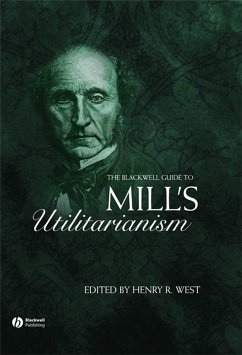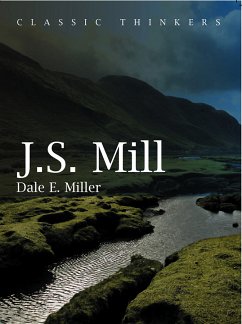
Utilitarianism and On Liberty (eBook, PDF)
Including Mill's 'Essay on Bentham' and Selections from the Writings of Jeremy Bentham and John Austin
Redaktion: Warnock, Mary
Versandkostenfrei!
Sofort per Download lieferbar
12,99 €
inkl. MwSt.
Weitere Ausgaben:

PAYBACK Punkte
0 °P sammeln!
Including three of his most famous and important essays, Utilitarianism, On Liberty, and Essay on Bentham, along with formative selections from Jeremy Bentham and John Austin, this volume provides a uniquely perspicuous view of Mill's ethical and political thought. Contains Mill's most famous and influential works, Utilitarianism and On Liberty as well as his important Essay on Bentham. Uses the 1871 edition of Utilitarianism, the last to be published in Mill's lifetime. Includes selections from Bentham and John Austin, the two thinkers who most influenced Mill. Introduction written by M...
Including three of his most famous and important essays, Utilitarianism, On Liberty, and Essay on Bentham, along with formative selections from Jeremy Bentham and John Austin, this volume provides a uniquely perspicuous view of Mill's ethical and political thought.
- Contains Mill's most famous and influential works, Utilitarianism and On Liberty as well as his important Essay on Bentham.
- Uses the 1871 edition of Utilitarianism, the last to be published in Mill's lifetime.
- Includes selections from Bentham and John Austin, the two thinkers who most influenced Mill.
- Introduction written by Mary Warnock, a highly respected figure in 20th-century ethics in her own right.
- Provides an extensive, up-to-date bibliography with the best scholarship on Mill, Bentham and Utilitarianism.
Dieser Download kann aus rechtlichen Gründen nur mit Rechnungsadresse in D ausgeliefert werden.












